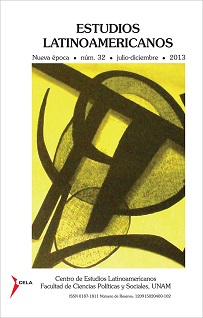The National-Popular and the main form: developments through Gramsci
Main Article Content
Abstract
This article analyzes the way Rene Zavaleta utilized Gramsci’s work in the context of Latin American and Bolivian political thought. He integrated Marx’s theory of surplus value with Gramsci’s theory of hegemony, and also incorporated in the analysis the idea that politics is a set of social practices in a given historical and cultural process; that is, it is the articulation of a social totality. Zavaleta understood the degree in which the Bolivian State and its civil society articulated themselves, and how a set of mediating elements played a role to achieve such articulation. He gave a new meaning to the concept of national-popular by focusing on Gramsci’s writings, particularly on the concepts of historical periods, as well as intellectual and moral reforms. However, Zavaleta goes beyond the notion of mass and the proletarian centrality. Under his concept of mass, for instance, Zavaleta understood that a given political action has its own means to determine a crisis situation.
Downloads
Download data is not yet available.
Article Details
How to Cite
Tapia Mella, L. (2013). The National-Popular and the main form: developments through Gramsci. Estudios Latinoamericanos, (32), 85–99. https://doi.org/10.22201/cela.24484946e.2013.32.47245
Citas en Dimensions Service

Este obra está bajo una licencia de Creative Commons Reconocimiento-NoComercial-SinObraDerivada 4.0 Internacional.

